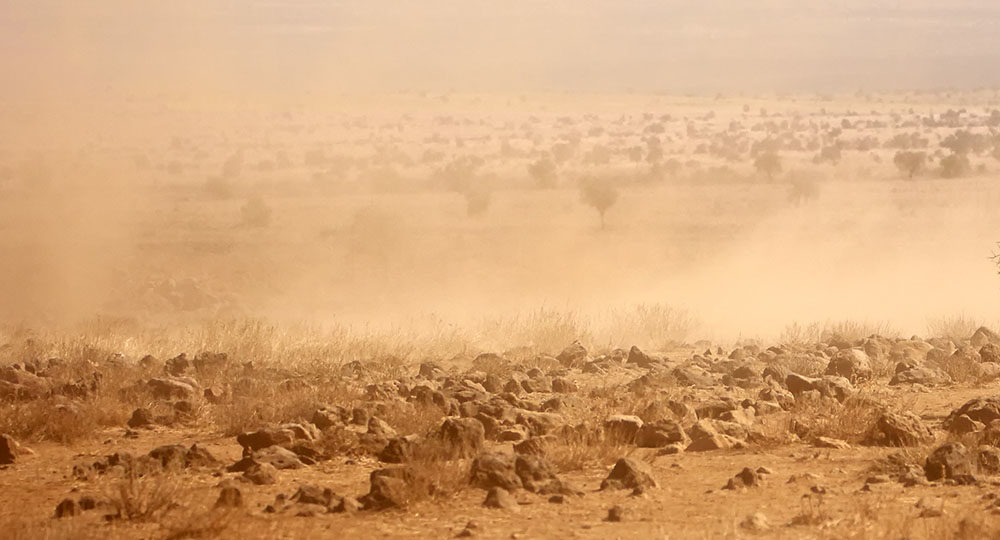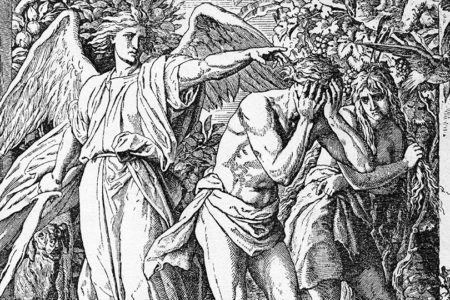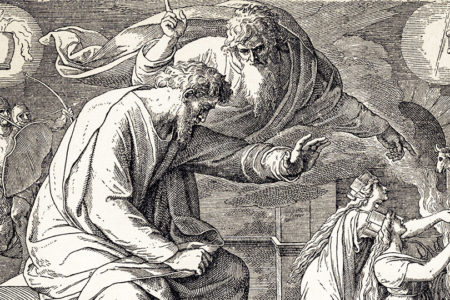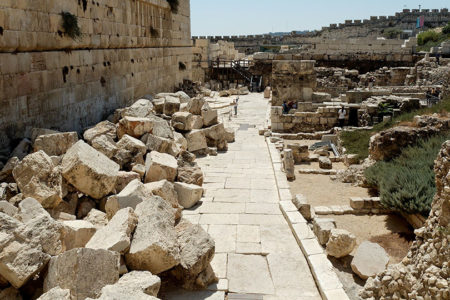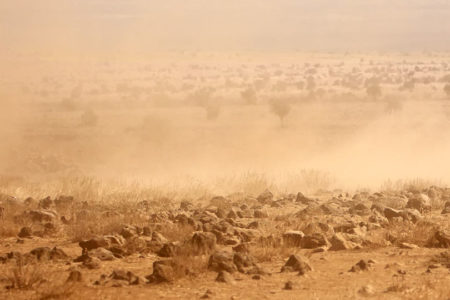Bring Us Back to You, O Lord Lamentations 4—5
The destruction of Jerusalem and the Temple in 586 B.C. smashed, like so much pottery, everything that had given God’s Chosen People a sense of national identity (Jer. 19:10–11). The process had not been quick, however. Babylon’s military forces breached the walls only after a prolonged, two-year siege with its accompanying horrific effects.
Jeremiah the prophet witnessed it all, and the Holy Spirit moved him to inscribe the nation’s grief in the form of poetic laments, resulting in the book of Lamentations.
Throughout Lamentations, Jeremiah skillfully painted word pictures to describe the terrors he experienced. His palette included metaphors, parallelisms, and personifications that bring color and intense feeling to the pages of this heartrending book.
Jeremiah’s tears flowed for the terrible suffering the Jewish people endured during the babylonian assault. Although the narrative accounts do not go into great detail (2 Ki. 25; Jer. 52), Lamentations does, describing the ordeal graphically.
Jeremiah’s tears also flowed because he realized God brought holy and due justice on an unrepentant, sinful nation. Through His prophets, God had pleaded incessantly with Israel to repent. He had even forewarned the nation as far back as Moses (Dt. 28:15–68; 32:24–25). Jeremiah himself had predicted similar horrors (Jer. 19:7–9). Instead of repenting, the nation mocked and scorned God’s messengers until it was too late (2 Chr. 24:19–21; 36:15–16; Jer. 7:25–26).
Throughout Lamentations, Jeremiah acknowledged the sins of his people, declaring them worse even than the sins of Sodom (4:6). consequently, God’s judgment was justified.
The magnitude of the disaster God brought suggests that He abandoned His people. How could such complete devastation insinuate anything else? Still, Jeremiah, through his tears, did not give up hope. He knew his God. Thus he cried out to Him for mercy and restoration.
Chapter Four: Remembering Ruination
In the fourth chapter of Lamentations, Jeremiah testified concerning the horrible days of siege, famine, and destruction.
He staggered at how Israel was treated (vv. 1–2). Its situation implied the nation had little value, no more than clay pots.
Images of famine and its animalistic effects on human beings haunted Jeremiah (vv. 3–10). He described infants dying of thirst because their mothers refused to nurse them. Even the lowly jackal does not behave so cruelly, he said. Children beg for a scrap of food, but no one gives them any. The once refined members of society now have no qualms about wallowing in garbage. The religious devotees, once beautiful and admired, now resemble walking skeletons, their skin darkened and shriveled like tree bark.
The famine was so severe that Jeremiah said, “Those slain by the sword are better off than those who die of hunger; for these pine away” (v. 9). The sword, at least, was quick. The ravages of famine were so terrible that tenderhearted mothers boiled and ate their own children: “The hands of the compassionate women have cooked their own children; they became food for them in the destruction of the daughter of my people” (v. 10; cf. Dt. 28:57).
Yes, Jeremiah brooded, the Lord truly had vented His great rage. He burned with such wrath that the foundations of Israel’s society were not only shaken, but destroyed: “The Lᴏʀᴅ has fulfilled His fury, He has poured out His fierce anger. He kindled a fire in Zion, and it has devoured its foundations” (v. 11).
Outsiders “would not have believed” that Jerusalem could have been overrun by conquerors (v. 12). Yet it was, because of the sins of Israel’s corrupt spiritual leaders. These holy men had turned into violent thugs who murdered those more righteous than they (v. 13). Their vicious actions brought consequences. God despised such immoral phonies and scattered them among the nations to become dishonored outcasts and untouchables (v. 16).
Jeremiah remembered that looking for outside help, some sort of last-minute ally, proved useless: “In our watching we watched for a nation that could not save us” (v. 17). Egypt drew away the Babylonians for a short time, but the relief was only temporary. God made sure they returned and burned the city of Jerusalem (Jer. 37:5–8).
Once the city was breached, the Judeans ran for their lives. The Babylonians, however, hunted them down wherever they went: “They tracked our steps So that we could not walk in our streets. Our end was near; our days were over, for our end had come” (v. 18).
Even King Zedekiah, whom the people of Israel had looked to for protection, was captured while he was fleeing (cf. Jer. 52:8).
Jeremiah’s thoughts then turned to a particularly unpleasant memory. Edom, one of Israel’s neighbors and, in fact, a distant relative, apparently had rejoiced at Israel’s disaster, participating in the sacking of Jerusalem and even cutting down Jewish fugitives in their flight (Obad. 10–14). Their actions especially galled Jeremiah. He sarcastically encouraged Edom to go on rejoicing over Israel’s plight. But what goes around comes around. The cup of God’s wrath and judgment, he warned, will one day come to Edom, just as it had to Israel. Israel’s punishment was over. Edom’s was yet to begin.
Chapter Five: Requesting Restoration
Then Jeremiah prayed to Yahweh, making what seems like two requests.
He asked that God remember Israel’s calamity: “Remember, O Lᴏʀᴅ, what has come upon us; Look, and behold our reproach!” (v. 1). The words look and behold are synonymous parallels with remember. Thus there is really only one request in this opening verse. When someone in the Bible calls on God to remember, he does not imply that God has forgotten or is even capable of forgetting. The speaker simply draws attention to the situation and looks to God for the beneficial outcome.
In drawing attention to Israel’s situation, Jeremiah summarized the distressful facets of the nation’s predicament (vv. 2–16). Foreigners now controlled Israel’s property. Jeremiah’s people were destitute and unprotected, like orphans and widows. Even the basic necessities of life, such as water and wood, now cost money. They were worn out from their oppressors’ hounding. They were dependent on foreign aid. They bore the punishment for the sins of their dead ancestors. There was no true governing authority. (Gedaliah, the Babylonian-appointed governor, had been assassinated, Jer. 41:2.)
They ventured outside to get food at the risk of their lives “because of the sword in the wilderness” (v. 9). At the same time, they suffered from starvation. The women had been ravished. Their leaders had been executed and dishonored. Younger men struggled under forced labor. Common, everyday experiences—such as old men’s guidance, young men’s carefree amusements, and a sense of lightheartedness—were all absent: “Our dance has turned into mourning. The crown has fallen from our head” (vv. 15–16). Israel’s honor was completely gone.
As Jeremiah contemplated all the grief and shame his people bore, he painfully moaned, “Woe [literally, Oy] to us” (v. 16). Still, he conceded that the troubles came because of Israel’s own sin.
Jeremiah concluded that Israel was left with little hope and much despair (vv. 17–18). The consummate illustration of the nation’s wretchedness was the condition of mount Zion. No worshipers strolled there, only foxes.
Jeremiah recognized Yahweh’s eternal sovereignty (v. 19). God was in control. Since that was true, Jeremiah courageously asked God, for the first time in the book of Lamentations, the ultimate question—one that has been asked by humankind throughout the centuries when confronted with great sorrow: Why? “Why do You forget us forever, and forsake us for so long a time?” (v. 20).
In poetic parallel form, Jeremiah inquired about the duration of God’s apparent rejection, wondering if it would be permanent (similar to his inquiry in Jer. 14:19–21). born in grief, Jeremiah’s question was rhetorical, meant to “remind” God of what Jeremiah himself had prophesied before the desolation of Jerusalem:
Thus says the Lᴏʀᴅ: “If heaven above can be measured, And the foundations of the earth searched out beneath, I will also cast off all the seed of Israel For all that they have done,” says the Lᴏʀᴅ (Jer. 31:37).
Because Jeremiah was convinced God is faithful to His Word, he submitted a second request. He asked for restoration: “Turn us back to You, O Lᴏʀᴅ, and we will be restored” (v. 21).
This request is the crux of the chapter, if not the whole book, and is similar to Ephraim’s request in Jeremiah 31:18: “Restore me, and I will return.” The sentence could be roughly translated, “bring us back, Yahweh, to You in order that we might return to our previous state or course of life.” The second sentence of verse 21, “Renew our days as of old,” is simply a poetic parallel of the same request in the first sentence.
In effect, Jeremiah asked God for the good old days. but he understood that the good old days are only good when people are right with God. To return to the good old days, Israel first needed to return to God.
Jeremiah concluded the book with a slight expression of doubt. bring us back, he said, “Unless You have utterly rejected us, and are very angry with us!” (v. 22). Surveying the consequences of Israel’s sin and the intensity of God’s wrath, he could not help but wonder if God had utterly rejected His people. Yet he knew that such a thing could not be true. As he said earlier, “For the Lord will not cast off forever. Though He causes grief, Yet He will show compassion According to the multitude of His mercies” (3:31–32).
“Do not fear, O Jacob My servant,” says the Lᴏʀᴅ, “For I am with you; for I will make a complete end of all the nations to which I have driven you, but I will not make a complete end of you. I will rightly correct you, For I will not leave you wholly unpunished” (Jer. 46:28).
